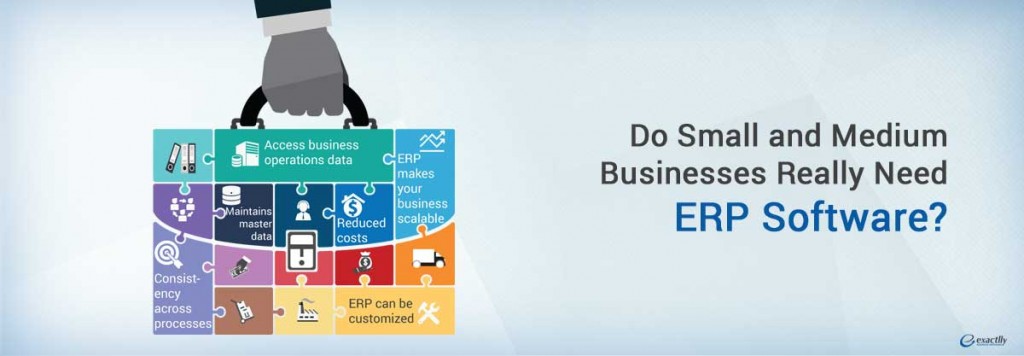SAP ERP Software: A Comprehensive Guide to the Enterprise Resource Planning Solution
Introduction
In today’s competitive business landscape, organizations are constantly seeking ways to streamline operations, enhance efficiency, and gain a competitive edge. Enterprise resource planning (ERP) software has emerged as a pivotal tool in this pursuit, offering a comprehensive solution for managing and integrating core business processes. Among the leading ERP providers, SAP stands out as a pioneer with its robust and adaptable SAP ERP software.
What is SAP ERP Software?
SAP ERP software is a comprehensive suite of integrated applications that cover a wide range of business functions, including:
- Financial management
- Supply chain management
- Customer relationship management
- Human capital management
- Manufacturing and operations management
 .
.
SAP ERP centralizes and streamlines these processes within a single platform, providing a real-time, 360-degree view of the entire organization.
Benefits of SAP ERP Software
The implementation of SAP ERP software offers numerous benefits for organizations, including:
- Improved efficiency and productivity: By automating and streamlining processes, SAP ERP eliminates redundant tasks and reduces manual errors, leading to significant time and cost savings.
- Enhanced data accuracy and consistency: The centralized nature of SAP ERP ensures that all data is consistent and accurate across the organization, eliminating data silos and improving decision-making.
- Greater visibility and control: SAP ERP provides a comprehensive view of all business operations, enabling managers to make informed decisions based on real-time data and identify areas for improvement.
- Increased agility and adaptability: SAP ERP’s modular design allows organizations to tailor the solution to their specific needs and adapt to changing market conditions.
- Improved customer satisfaction: By integrating CRM and other customer-facing functions, SAP ERP enables organizations to deliver exceptional customer experiences.
 .
.
Disadvantages of SAP ERP Software
While SAP ERP offers numerous benefits, it is not without its drawbacks:
- High cost of implementation and maintenance: SAP ERP is a complex and comprehensive solution that requires significant investment in implementation and ongoing maintenance.
- Complexity and learning curve: The sheer scale and functionality of SAP ERP can make it challenging for users to learn and navigate effectively.
- Customization challenges: While SAP ERP is customizable, extensive modifications can be time-consuming and costly, potentially impacting system stability.
- Integration challenges: Integrating SAP ERP with legacy systems and third-party applications can be a complex and time-consuming process.
- Vendor lock-in: Once implemented, organizations may become dependent on SAP for ongoing support and maintenance, limiting their flexibility in choosing other solutions.
Essential Information about SAP ERP Software
- Modules: SAP ERP comprises over 25 integrated modules, each catering to a specific business function.
- Architecture: SAP ERP is based on a three-tier architecture, consisting of a database layer, an application layer, and a presentation layer.
- Data model: SAP ERP uses a standardized data model that ensures data consistency and integrity across all modules.
- Security: SAP ERP employs robust security measures, including role-based access control and encryption, to protect sensitive data.
- Support: SAP provides comprehensive support services, including implementation assistance, training, and ongoing maintenance.
Frequently Asked Questions (FAQs)
- What is the difference between SAP ERP and SAP S/4HANA?
- SAP S/4HANA is the next-generation ERP solution from SAP, built on the HANA in-memory database platform, offering enhanced performance and real-time capabilities.
- Is SAP ERP suitable for small businesses?
- Yes, SAP offers a range of solutions tailored to small businesses, including SAP Business One and SAP Business ByDesign.
- Can SAP ERP be customized to meet specific business needs?
- Yes, SAP ERP allows for extensive customization through its ABAP programming language and configuration options.
- What are the implementation timelines for SAP ERP?
- Implementation timelines vary depending on the size and complexity of the organization, but typically range from 6 to 18 months.
- What is the cost of implementing SAP ERP?
- Implementation costs can vary significantly based on factors such as the number of modules implemented, customization requirements, and consulting fees.
- What is the return on investment (ROI) of SAP ERP?
- The ROI of SAP ERP can be substantial, with organizations typically realizing improvements in efficiency, productivity, and customer satisfaction.
- How does SAP ERP compare to other ERP solutions?
- SAP ERP is a leading ERP solution, known for its comprehensiveness, scalability, and global reach.
- What are the key success factors for SAP ERP implementation?
- Success factors include strong project management, clear business objectives, and user adoption and training.
- What is the future of SAP ERP?
- SAP is continuously investing in SAP ERP, with a focus on cloud-based solutions, artificial intelligence, and machine learning.
Conclusion
SAP ERP software is a powerful tool that can transform business operations, enabling organizations to streamline processes, enhance efficiency, and gain a competitive advantage. While it is a complex and costly solution, the potential benefits are substantial, making SAP ERP a valuable investment for organizations looking to optimize their operations and achieve long-term success.
Disclaimer
The information provided in this article is for general informational purposes only and does not constitute professional advice. It is recommended to consult with a qualified expert before making any decisions related to SAP ERP software implementation or use.
 .
.

